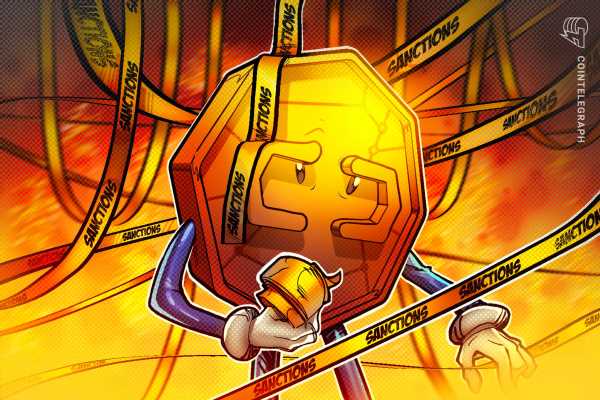The United States Treasury has announced deputies of the multilateral Russian Elites, Proxies, and Oligarchs, or REPO, Task Force have targeted crypto in Russian entities’ attempts to evade sanctions.
In a March 9 announcement, the U.S. Treasury said the task force had blocked or frozen more than $58 billion worth of assets subject to sanctions since Russia’s military invaded Ukraine in February 2022. Members of the REPO team have worked to “counter Russian sanctions evasion”, which included illicit crypto transactions.
“As Russia’s war of aggression continues, REPO members remain determined in their commitment to impose steep costs on Russia,” said the task force. “REPO will continue to identify, locate, and freeze the assets of sanctioned Russians, with the aim of depriving the Kremlin of the funds it needs to fight its illegal war.”
Since the conflict in Ukraine began in February 2022, the U.S. Treasury’s Office of Foreign Assets Control as well as counterparts in the European Union have imposed strict sanctions against entities tied to Russia in an effort to slow down the war machine. However, according to a Chainalysis report on the one-year anniversary of the war, pro-Kremlin groups and propaganda outlets were able to use crypto transactions to raise roughly $5 million for their cause.
Related: Ukraine-based blockchain firm reports company ‘stronger’ one year into war
REPO added that assets tied to Russia under its members’ jurisdictions would remain “immobilized” until an end to the conflict. At the time of publication, there is no sign of the war abating with large swaths of Ukrainian territory under Russian occupation and many cities in Ukraine at risk of attack.
Source: Read Full Article
-
Hackers Take Over PwC Venezuela Twitter Account To Share Fake XRP Giveaway
-
Council of Europe adopts DAC8 crypto tax reporting rule
-
Gryphon Digital seeks court dismissal of Sphere 3D's lawsuit
-
Sui Foundation denies it sold locked staking rewards on Binance
-
Ripple Price Analysis: Bears Active Near $0.40

